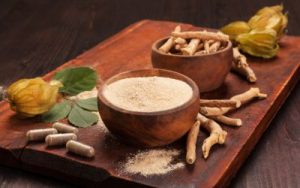PCOS or Polycystic Ovarian Syndrome is a hormonal disorder in women, which is quite common these days. It causes irregular menstrual cycles, abnormal menstrual bleeding, obesity and, in some cases, insulin resistance. PCOS affects over 10% of the women population and is one of the major causes of female infertility.
Allopathic treatment for PCOS often involves hormonal pills. With this, the doctors try to induce ovulation and subsequently menstruation, but the underlying cause is not treated. However, with Ayurveda, the focus is on finding out the root cause and addressing it.
PCOS affects various glands, the ovaries, adrenals, pancreas and pituitary glands, causing hormonal imbalance. There is an increased production of androgen, which holds back the maturation of ovarian follicles (female reproductive cells) causing enlargement of ovaries. The ovaries may grow more than two to five times the average size of ovaries due to the presence of multiple follicle cysts at different stages of development.
An unhealthy and sedentary lifestyle is considered to be a significant contributor to PCOS. A poor diet with high levels of refined carbohydrates can cause a rise in insulin levels.
When to consult an Ayurvedic physician?
Excess production of androgen can cause any one or more of the below symptoms. If you are suffering from or suspect PCOS, consult an Ayurvedic physician to manage the issue effectively.

- Absence or delayed periods
- Heavy or prolonged periods
- Irregular periods
- Menstrual pain
- Infertility
- Ovarian cysts
- Excessive hair growth
- Mood swings
- Weight gain
Ayurvedic Management of PCOS
Ayurveda helps to naturally prevent PCOS by balancing the doshas. According to Ayurveda, PCOS is a Kapha dosha, and treatment should be aimed to balance the dosha.
From basti, virechana to vamana, different methods are used to cleanse the body first. Later herbal preparations are given to regulate the hormones.
Herbs
Certain herbs help regulate PCOD by balancing the hormones. Neem, tulsi, fenugreek, basil and cinnamon are considered suitable to manage the condition. Ayurvedic practitioners vouch for the effectiveness of ashwagandha roots, and arjuna barks. They are widely used in treating PCOS.
Ayurveda also prescribes the need to reduce anxiety and stress to get rid of PCOS troubles. For that, different yoga asanas are suggested, for example, Pranayama.
Following a healthy diet is critical in PCOS. In addition to reducing the quantity of food, those suffering from PCOS are advised to take low glycemic index foods like cauliflower, tomatoes, onions, apples and grapes. Eating at regular intervals is also of great importance.
While practising yoga and managing your diet, you must consult a good Ayurveda doctor for PCOS treatment.



